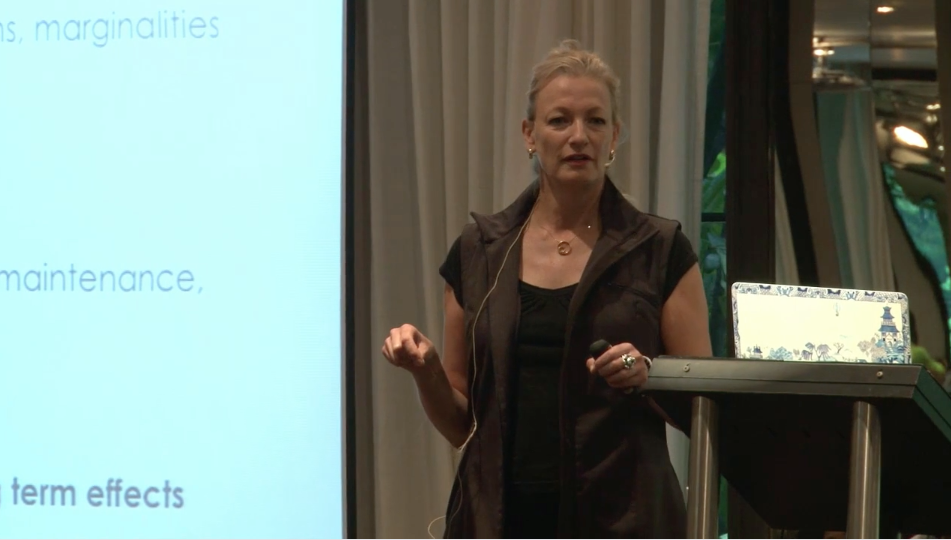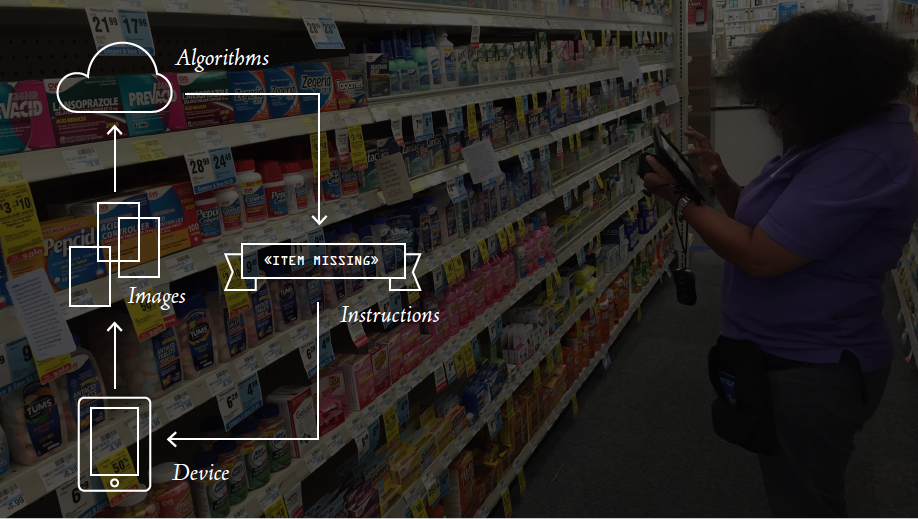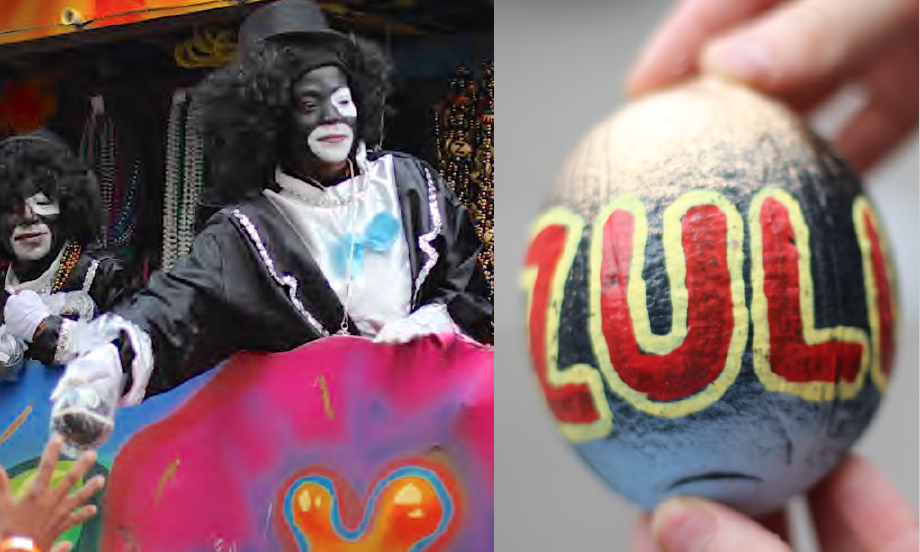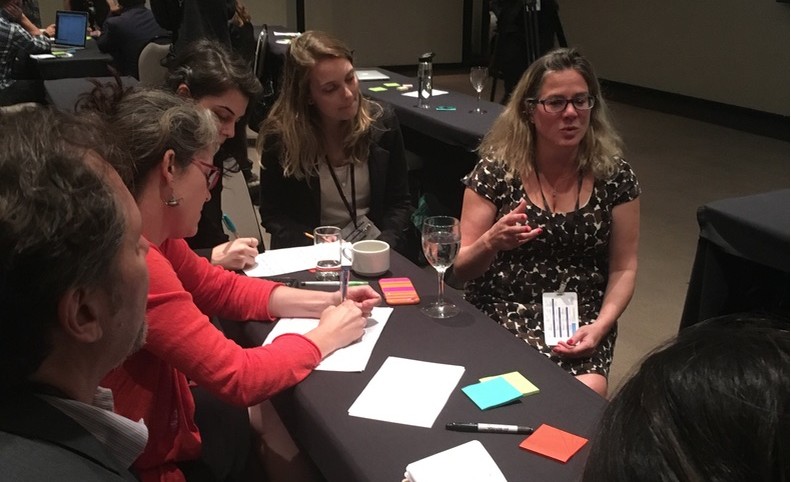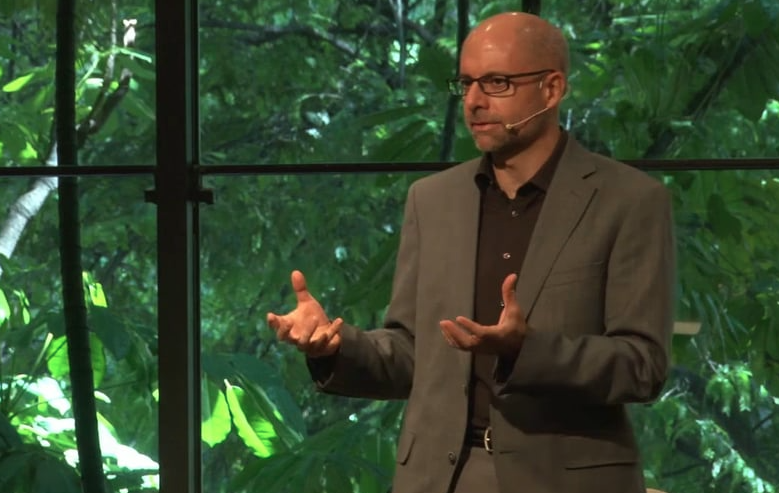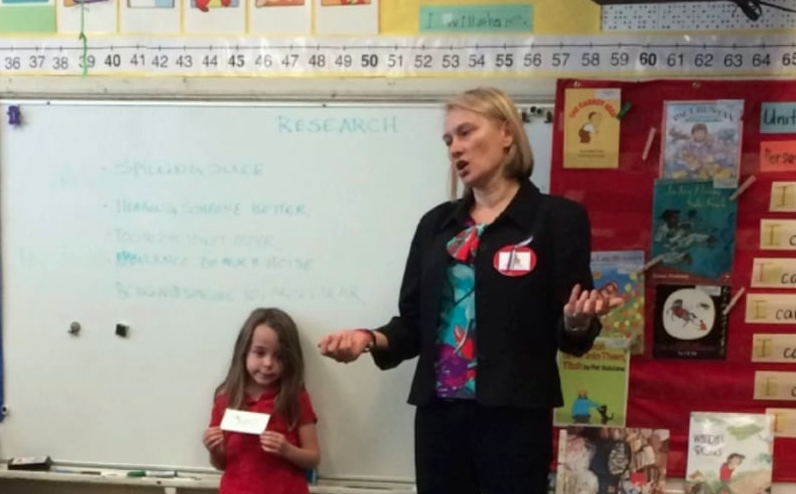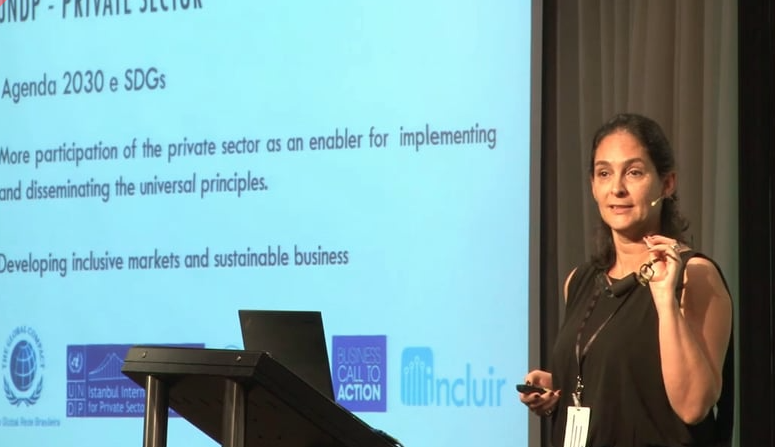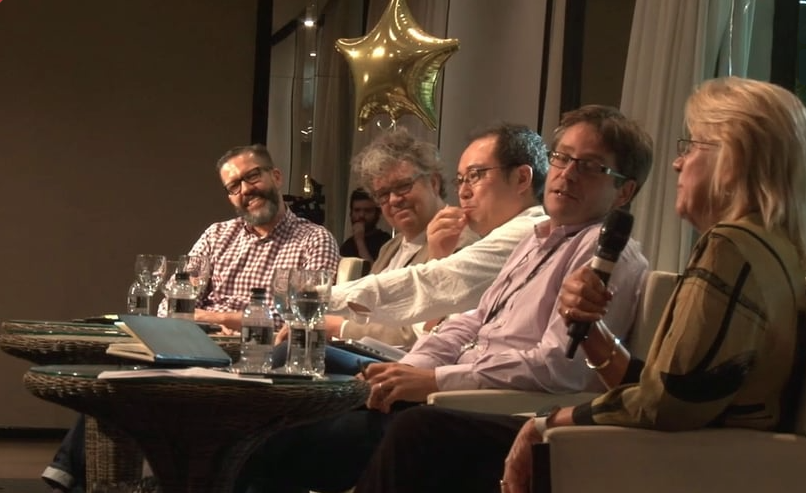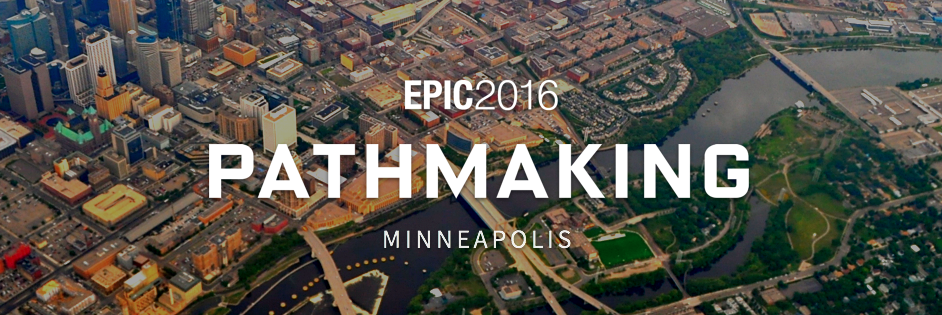Every year the EPIC Board opens the published conference proceedings with a Conversation—a reflection on key ideas and passions afire at the meeting and a gateway to continuing those conversations together. 11 years of EPIC Proceedings are free in Intelligences: we invite you to search, read, comment and download. EPIC Members can also access EPIC2015 & EPIC2014 conference video.
EPIC2015 was notable for so many excellent reasons. First, the conference took place in an extraordinary city with a vibrant and growing population of EPIC people. Holding the conference in São Paulo enabled an influx of new participants and presenters from Latin America, expanding the community and conversation with new colleagues and stakeholders as well as new ways of thinking about people that develop out of different cultural perspectives.
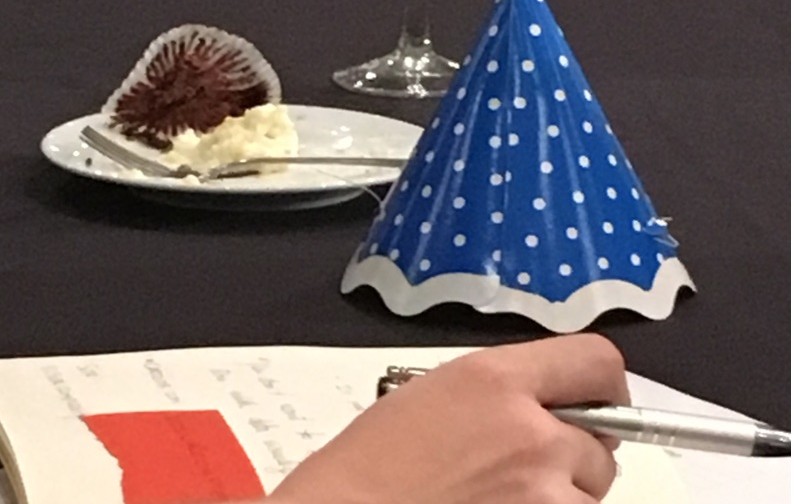
Second, we celebrated our first double-digit birthday—10 years! Our birthday gave us the opportunity to reflect on the paths paved by individual practitioners and EPIC as a community over the last decade, and how we will use that history to pave our future. We owe many thanks to the local participants who welcomed EPIC and so many practitioners from the US, Europe and Asia.
Industry Day
This year we held a pre-conference event we called Industry Day, created specifically for the São Paulo community to get to know more about some of the many businesses practicing ethnographic work across a range of contexts. Our premier sponsors presented to a standing-room-only local audience of approximately 300 people. The energy in the room was palpable as we heard from major global corporations and international consultancies.
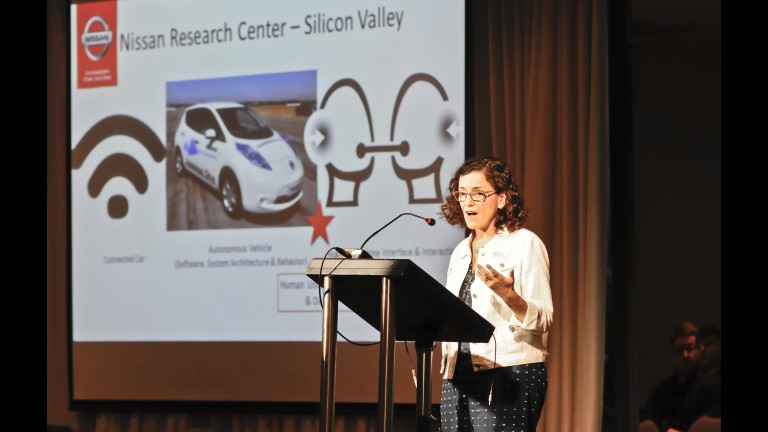
Companies like Intel and Steelcase have made pioneering investments in ethnographic work; as Izabel Barros noted, Steelcase has been “building bridges between people, process, technology and space” since it registered its first patent in 1914 after fieldwork revealed the immense value of a fireproof wastebasket. Melissa Cefkin reported on more recent initiatives in the automotive industry, where Nissan understands the critical importance of asking, “What are the social practices of the road? How can automomous vehicles live as effective social actors in diverse locations?”
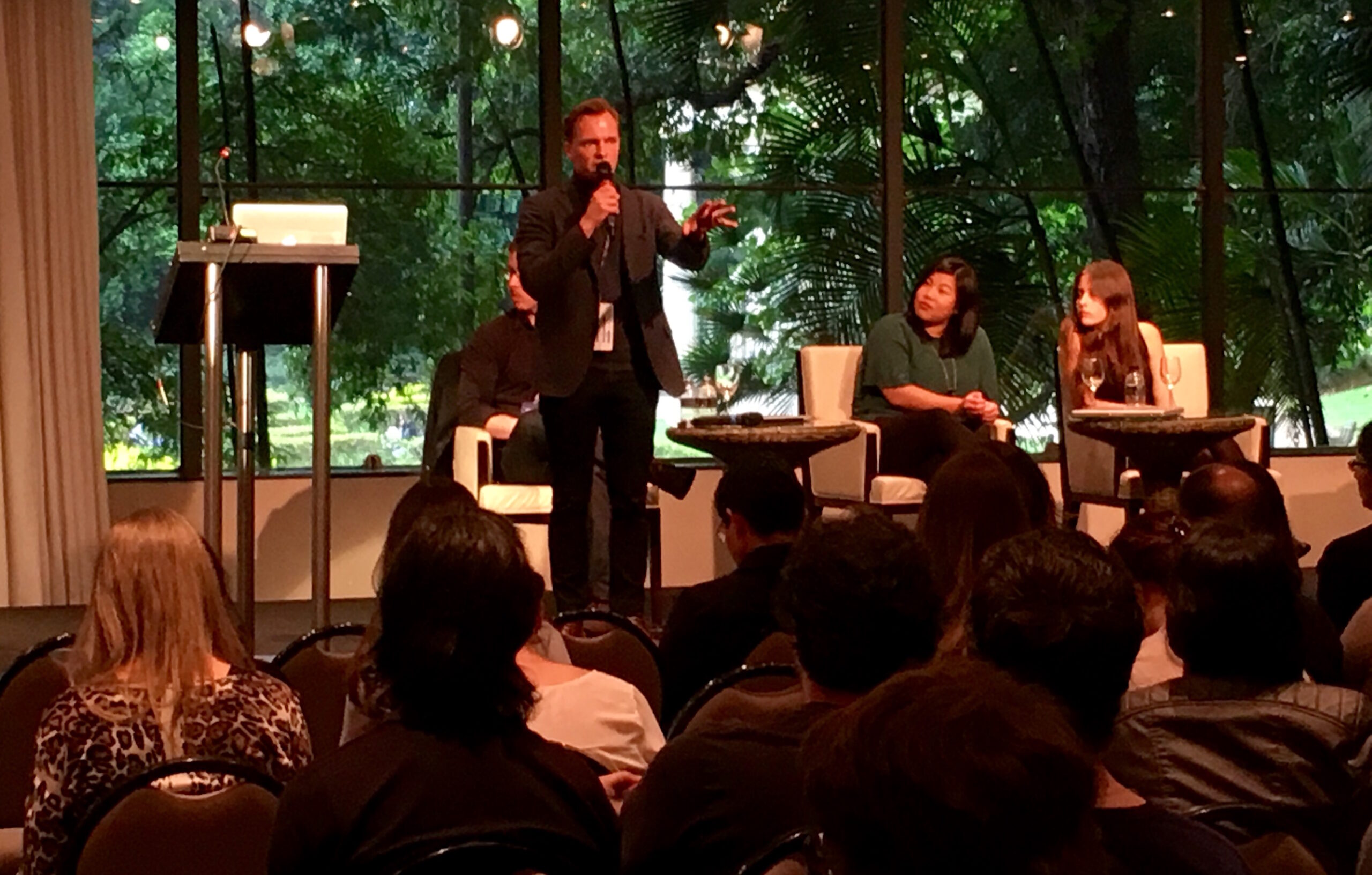
Industry Day sent clear messages about the value of ethnographic praxis. We can change the world not just because we understand the social and human factors that drive it, but because we have shown we can make powerful contributions that affect the future. As Johannes Suikkanen from Gemic put it, in this era of discontinuity, ethnographic thinking informs “not just business questions, but existential questions.”
“‘The field’ is defined by our attention to it”
Some presentations challenged us to think about how the definition of our field studies may be changing as our world is inhabited increasingly by connected devices and autonomous systems. In her opening keynote address, Elizabeth Churchill drew a distinction between understanding “what is perennial and what goes away,” reminding us to bring our ethnographic thinking to understanding the new and the different within the frame of our basic knowledge of human behavior and interactions. She bridged us to the future, with musings on the social life of electronic devices.
The reality of this future was brought to the fore by Tiffany Romain and Mike Griffin of Ricoh, who unexpectedly found themselves in the midst of deep hanging out with an algorithm, toothpaste and retail shelves.
Their attention to how and where different kinds of value are created defined the field for Daiane Scaraboto and Bernardo Figueiredo, who traced the circulation of small chapels in Brazil, and for Hal Phillips and Meg Kinney’s dive into the ritual of Mardi Gras.
Several presenters explored the field as a place to create value in collaboration with stakeholders and clients. Maria Cury turned that age-old artifact of fieldwork—field notes—into a social space, directly engaging stakeholders in the field to increase their understand of the impact and value of ethnography.
Divorce Nothing
Over 10 years of EPIC, conversation increasingly focused on to how ethnographic insights can shape strategy and the future of business. But terms like ‘insights’, ‘strategy’ and ‘innovation’ are cast about rather casually these days, and at EPIC2015 we pushed each other for more rigor and precision. After all, argued Shaheen Amirebrahimi, even our best research can become a vehicle for corporate stagnation as it travels the road from ‘insight’ to ‘innovation’.
Simon Roberts and Tom Hoy, extracting themselves and some clients from a tent at a campground in Southern California, asserted that we produce too much information from fieldwork that’s not actually suited to the way organizations innovate. They reminded us that our obligation goes beyond insights and ideas, and we need to connect with the people and teams in a position to act—and help them act. ken anderson and colleagues urged us to go after ‘dynamics’, not ‘insights’: to create transformative innovation, ethnographers must understand shifting webs of significance as well as translate research and catalyze opportunities. Hiroshi Tamura and colleagues’ Innovation Studio Fukuoka, ethnographic research initiated a sense of co-ownership that had concrete effects on the success of entrepreneurial teams.
I ❤ My Job
We do strategy, we do innovation, but we’re lying, said keynote speaker Luis Arnal, if we don’t admit that we do it for love. The joys and passions that really drive us every day permeated EPIC2015 as a source of inspiration. Ethnographers can taste life intensely and live many lives. Love also exists as a sense of responsibility because we have the tools to help change the world for the better.
Exploring the tension between what exists and what could be, Marcelo Judice and colleagues used Surrealism to improve public health in marginalized communities of Rio de Janeiro. As a teenager, Andrea Morales Moreno found empowerment in the D.I.Y. punk culture and “Mother Theresa in a menstrual pad.” Carrie Yury’s PechaKucha about explaining ethnography to elementary school children showed us that the power of what we do can be evident to 10 year olds—and showed the importance to a working mother of sharing it.
Closing keynote speaker Luciana Aguilar reminded us that our remit should not only be changing the world of business, but using business to change the world. She implored us to think creatively on how our work can contribute to the UN global goals of ending poverty, fighting inequality, and fixing the climate.
10 More Years
Reflecting on our last 10 years, as well as the pioneering work begun well before EPIC’s incorporation, also forces us to confront our need to continue to build on our existing knowledge, using past work as a springboard to new understanding rather than continually making the old new again. In a session reflecting on the first 10 Years of EPIC, Jeannette Blomberg asked for fewer “just-so stories and more accounts of what is broken and what we can learn from it”—a reminder that while it is nice to celebrate our successes and tell interesting narrative case studies, we only push our practice and knowledge forward by dissecting that which fails and that which we do not understand.
A key part of that growth and evolution continues to be growing our community to include new constituents who generate new knowledge that builds on our existing work and our existing understanding of social phenomena. This includes EPIC continuing to expand our horizons beyond our own cultural framework, including the interpretive lens of the global south, and bringing in new disciplinary perspectives, as we will in 2016 when EPIC will be hosted by the Department of Anthropology and Carlson School of Business at the University of Minnesota. We invite you to join and continue the conversation.

